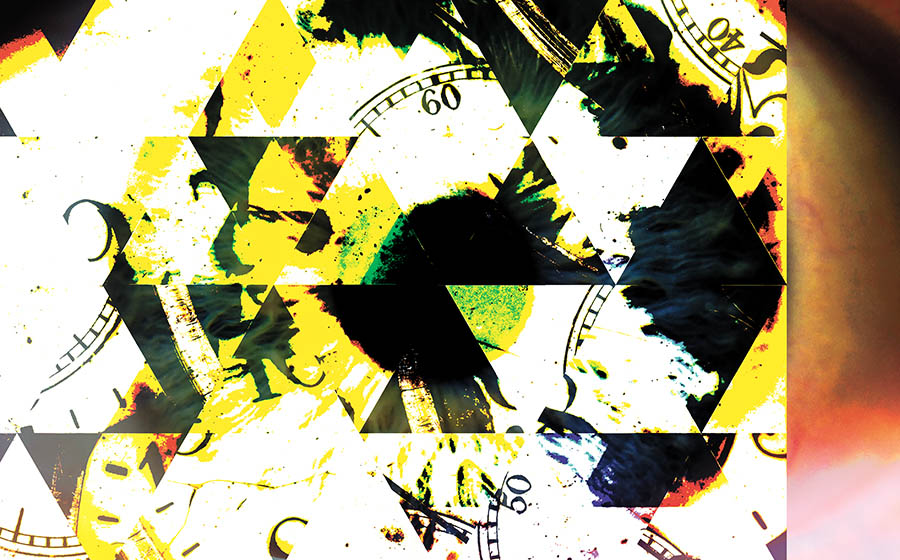
A Victorian meme touches down in the twenty-first century
Howard Kaplan: Why do we need time travel?
James Gleick: We need it to cope with regret. We need it to explore history, to think about the past, not necessarily in a scholarly way, but what brought us here””we want to experience it. Some time travel is the desire to do something over. Above all, we need it to escape death. It’s our chance at immortality. We are, apart from any science technology, already time travelers. All time travel stories, in one way or another, are about trying to evade the inevitability of death.
Tell me about H. G. Wells and his novella The Time Machine (1895).
Wells thought of himself as a futurist. People were full of excitement about the future and wondering what the year 1900 would bring. Science was bringing modern wonders, and an author like Jules Verne was very much about modern wonders””boats that can travel under the sea, ships that could take us to the moon. The funny thing is that’s not what H. G. Wells was interested in. When you read The Time Machine, you realize it’s a peculiar book. The time traveler only goes to the future, and the future that he discovers is not at all marvelous. It’s degenerate; there’s a kind of misery and a kind of bifurcation of the race into Morlocks and Eloi. It’s really a chance for Wells to explore some of his ideas about social evolution and human evolution””another new theme in our scientific tool kit thanks to Charles Darwin.
In addition to George Pal’s 1960 film adaptation of Wells’s book, what would you consider the best movies about time travel?
An absolute must is La Jetée by Chris Marker from 1962. It’s thirty minutes, it’s black and white, it’s obscure, it’s brilliant, and rarely seen. A lavish remake of that movie is 12 Monkeys (1995). It’s really good. I loved it.
It seems like there are two types of people in the time travel world: those who want to go back, and those who want to go forward. Has there ever been a consensus?
I think there’s a real divide. Personally, I always assumed that everybody would want to go to the future. I always wanted to go to the future. H. G. Wells sent his guy to the future, even though he was interested in history. On the contrary, I started asking people, and as far as I can tell, it’s fifty-fifty. But people have definite preferences.

What would be your preference?
My own feeling changed while I was working on my book Time Travel: A History. Partly because I had written about the past and wouldn’t it be nice to meet Isaac Newton and see if anything I had written was actually right. An actor friend of mine answered without a moment’s hesitation and said she wanted to go back to watch Shakespeare with his company of players working out those plays. I thought, “Wow, that would be good.” Also, doesn’t it seem that our sense of the future just in the last few years has gotten darker and darker? The future is for many people less likely to be imagined as a time of excitement and marvel, and more likely to be imagined as something scary and desperate. That changes things too. You can see that in our literature, which has become completely dystopian.
In your book you write, “Time traveling while black or female poses special hazards.” Who are these particular travelers?
As in every other part of our culture, diversity has been slow in arriving in the science fiction business. There have been lots of women writing about time and time travel. Of course, Virginia Woolf, of the great writers, was one of the very first, along with Marcel Proust and James Joyce around the same time, to suddenly focus on time as her principal mission. Her book Orlando (1928) is a gender-bending time travel masterpiece. A terrific recent time travel book that makes the point that it might be more dangerous for a black person to appear in sixteenth-century England, let’s say, is Dexter Palmer’s Version Control (2016). We’re getting more diversity in our art as well as our lives, belatedly.
What would a time travel machine look like today? Could the Internet fill that role?
Yes, the Internet is our version of a time travel machine. It enables us to visualize the past, to project ourselves into the future””our images and our messages. It connects us with the past in surprisingly vivid ways, especially now that it’s being mixed with augmented reality and virtual reality technologies. I think it’s sort of fair to say that the Internet is our version of a time machine or a time gate. It’s the closest thing we’re ever going to have.
You’ve written that “Time travel opens our eyes.” In what ways?
We could quote Virginia Woolf: “For what more terrifying revelation can there be than it is the present moment? That we survive the shock at all is only possible because the past shelters us on one side and the future on another.” It goes back to your first question: Why do we need time travel? Because the present isn’t enough. The present by itself is a prison. It’s confining, and then it’s gone. Opening these doors to the past and to the future makes us human.
About the Contributors
James Gleick is an author and essayist who writes about science and technology and their cultural consequences. In addition to Time Travel: A History, he is the author of the bestselling books Chaos: Making a New Science, Faster: The Acceleration of Just About Everything, and What Just Happened: A Chronicle from the Information Frontier, among others. He was elected president of the Authors Guild in 2017.
Howard Kaplan is the former editor in chief of Asiatica, the annual magazine of the Freer and Sackler Galleries, Smithsonian Institution. For his writing he has received fellowships from the MacDowell Colony, the Bread Loaf Writers’ Conference, and the Edward Albee Foundation among others. He currently divides his time between New York and Washington, DC.


